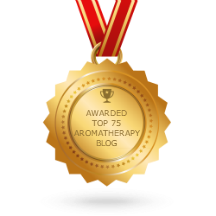When, three days in a row, people email us variations of the same inquiry, it is time to write about it.
This week the inquiries take the form of " My (fill in relationship) has been diagnosed with / is battling (fill in the type or organ) cancer. Which of your Frankincense oils will be most helpful, and how should we administer it?"
And the messages make me want to cry. This is the answer...followed by the science, followed by my opinion.
Almost any of our Frankincense oils can provide valuable emotional and spiritual support to your relative and to those who love him/her. Either by diffusion, or, properly diluted, in a hand or foot massage, Frankincense has a long history of proven value. Personally I would reach for our Boswellia Carterii CO2 extracted because the CO2 extracts contain a powerful anti-depressant component, Incensole acetate, not found in significant amounts in the distilled essential oils. But that is personal taste.
Please note that I said "emotional and spiritual support." A brief tour of the internet will show a LOT of research on the effects of specific Frankincense extracts and components on various strains of cancer cells in a petri dish in a laboratory. Most of the success stories concern the effect of Boswellic Acid, a component of Frankincense Resin. The problem is, Boswellic Acid is NOT a volatile component of the resin. It does NOT distill over into the essential oil. There is NO Boswellic Acid in Frankincense Essential Oil nor in CO2 Extracted Frankincense oil. At one time a large marketing company made claims that their Frankincense EO did contain this substance. After a couple of years of these misleading claims the founder of the company himself wrote a letter to their affiliates explaining that Boswellic Acid is not present in their essential oil. There are many published studies showing the effectiveness of various alcohol extractions of Frankincense Resin against various strains of cancer cells. I have seen some research indicating that Frankincense oil, *in a petri dish, in a lab* may have an effect on a specific strain of bladder cancer cells. There is other research showing that certain components of Myrrh oil may be even more effective on specific strains of breast, cervical, and/or lung cancer cells. (Why do we not see marketers recommending Myrrh Oil for cancer? Perhaps they don't have as much of it to sell.?)
Long story short: the leap from experimental success in a petri dish in a lab to being actually able to effect the growth of cancer cells in human or animal tissue is huge.
I wish I could tell you that one of our products can or could reverse the growth of a cancerous tumor in a loved one. What I can do is offer products that may give emotional support, perhaps ease some pain and discomfort, perhaps lift the spirits.
And...my personal belief? I believe that there is a special place in Hell reserved for those who will give false hope to the suffering in order to increase their profits.
I wish I could give you a different answer. But there is not one.
Thursday, May 7, 2015
Subscribe to:
Comments (Atom)


